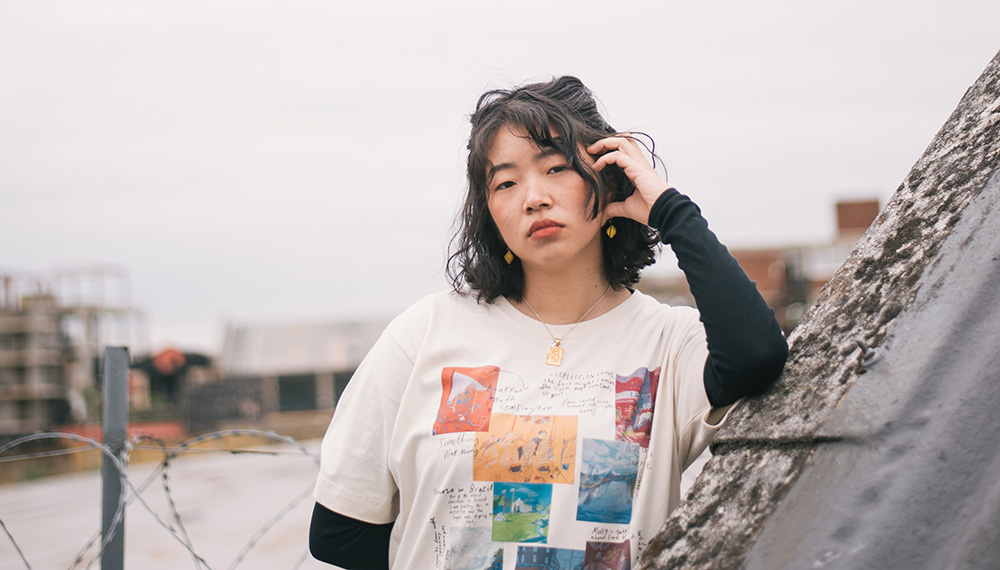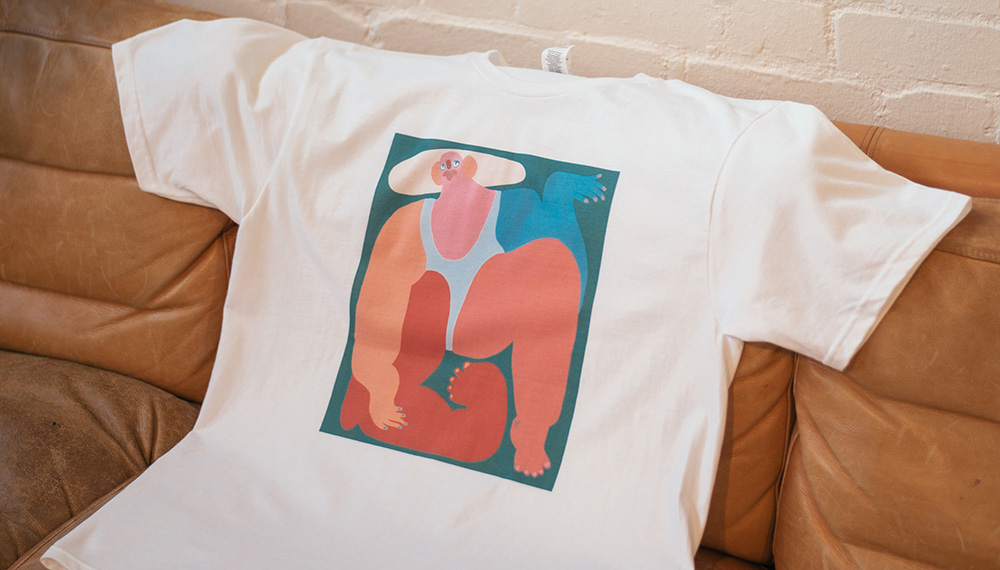
Whatever field you’re in, it can seem like a daunting leap to start making your own merch online to sell to your audience. But if there’s one thing we’ve learned from the charities, illustrators, designers, artists, musicians and content creators that sell through our platform, it’s that there’s definitely an appetite for well-made tees that let your fans show their support for what you do.
Though it’s oft-seen as a separate endeavour, the best way to think of merch is as an extension of your practice. We’ve been taking notes from some of our best creators, and the biggest common theme we’ve noticed – from Joey Yu, to Amnesty International, to IAMDDB, to WWFM – is that they incorporate their merch into what they already do.
Authenticity
A lot of this comes down to authenticity. From when you decide to make tees, through to the design stage and promoting, it’ll be easiest for you to rep your T-shirts if they make sense in the context of what you’re already doing.
Illustrator Jor Ros really drove this home when we spoke to him. “You need to be able to put yourself behind your product and believe in it,” he outlined. “After all, how can you expect someone else to do that if you can’t do it yourself?”
As with all creative work, people can pick up on what’s genuine, and they’re more likely to buy and support your merch if they can sense you’re committed to your designs.
Another Canvas
When we spoke to artist Amber Vittoria, she told us that one of the reasons she loves making tees is that they act like an advertisement for her work, “People will ask the person wearing it, ‘Who made that shirt?’ and they’ll give my name and Instagram.”

We hear variations of this time and time again from our community, and it highlights the fact that the value of merch goes way beyond the money you’ll make on sales. Once you’ve sold your T-shirts they’ll continue to live on as another canvas for your work, helping to raise awareness of you and of any cause that you’re championing:
- A design could start a conversation about your work for human rights, like Amnesty’s Rebellion campaign
- Someone might check out your music on spotify or Soundcloud for the first time after asking a friend where their hoodie is from
- Fans tagging themselves in your T-shirts will up your profile on socials and help extend your network
- Your tees can drive an interest in your work that you can grow into a brand, a la Maria Falbo’s label Copson
- Collaborating with another artist or designer on a T-shirt will make their fans aware of your work too
For more insights from our community, check out Jackson Green’s musings on merch design.


